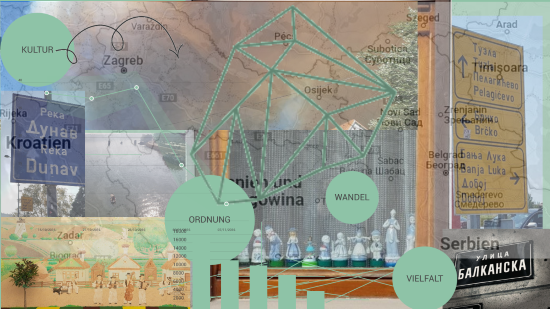Order Change and Cultural Diversity
 The focus of this research area is the transformation of order against the background of the cultural diversity of Southeastern Europe. It is concerned with political transitions and turning points, such as regime changes, wars, revolutions, and reforms, including the political, economic, and cultural consequences. In terms of space and time, the regions and countries of the former Yugoslavia in the 20th century are at the center of research. Social orders are understood as changeable entities shaped by structures and practices. Current research projects therefore focus on the actors of change and their actions that shaped political, economic, and social transformations. The question is how individuals and groups perceive and deal with cultural diversity in times of change. It seems important to examine the processes of difference formation and categorization of cultural and ethnic relations, and thus to address the foundations of inclusion and exclusion of people. The content of the study includes, for example, urban life and self-images, cultural border-crossing processes and knowledge transfer, dealing with cultural heritage, ideas of order of different groups, and others.
The focus of this research area is the transformation of order against the background of the cultural diversity of Southeastern Europe. It is concerned with political transitions and turning points, such as regime changes, wars, revolutions, and reforms, including the political, economic, and cultural consequences. In terms of space and time, the regions and countries of the former Yugoslavia in the 20th century are at the center of research. Social orders are understood as changeable entities shaped by structures and practices. Current research projects therefore focus on the actors of change and their actions that shaped political, economic, and social transformations. The question is how individuals and groups perceive and deal with cultural diversity in times of change. It seems important to examine the processes of difference formation and categorization of cultural and ethnic relations, and thus to address the foundations of inclusion and exclusion of people. The content of the study includes, for example, urban life and self-images, cultural border-crossing processes and knowledge transfer, dealing with cultural heritage, ideas of order of different groups, and others.
Currently, two projects are being worked on:
Ports on the Danube: History, Architecture, People
The project is carried out in cooperation with the Hungarian National Archives in Budapest (Máté Tamáska) and the Faculty of Arts in Novi Sad (Žolt Lazar, Dušan Marinković and Dušan Ristić). Daniela Simon is responsible for project management. It is funded by the Baden-Württemberg Foundation.
Link to the project homepage
Cities in Transition
The project focuses on transformation processes in selected cities in Southeastern Europe since the 1980s. Cities are understood as administrative, economic, and cultural centers and thus spaces of diverse social developments. As crystallization points of different and interlocking practices and discourses, they are places of initiation of economic, cultural and political change. The main concern of the project is to make visible the actors of change on the macro and micro level and thus the mechanisms of transformation "from below". An edited volume is currently being prepared as part of the project.


